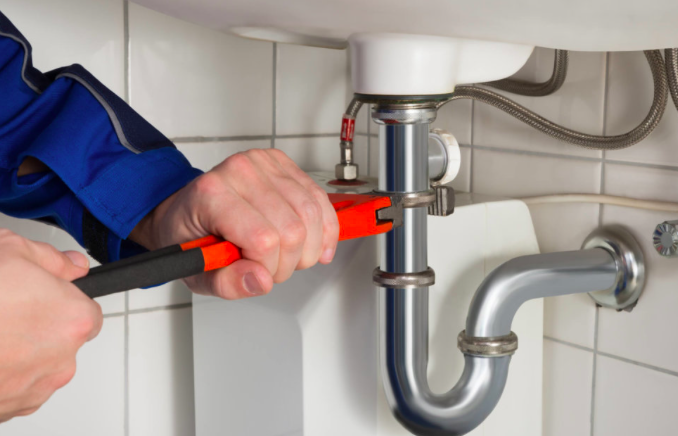Plumbers are vital to maintaining the infrastructure of modern society. Their expertise ensures that the water supply and waste management systems function efficiently, directly impacting our daily lives. This article explores the various roles plumbers play, the skills required, the types of plumbing services available, and the importance of hiring licensed professionals.
The Essential Role of Plumbers
Plumbers are responsible for installing, repairing, and maintaining pipes, fixtures, and other equipment that facilitate water distribution and waste disposal. Their work encompasses a broad range of tasks, including:
- Installation of Plumbing Systems: Plumbers are involved in setting up plumbing systems in new constructions, which includes laying pipes, installing fixtures, and ensuring compliance with local building codes.
- Maintenance and Repairs: They regularly inspect plumbing systems to identify issues such as leaks, clogs, or pipe corrosion. Timely maintenance can prevent costly repairs and prolong the lifespan of the plumbing system.
- Emergency Services: Plumbing emergencies, such as burst pipes or sewage backups, can occur unexpectedly. Plumbers provide 24/7 services to address these urgent issues, minimizing damage to properties.
- Remodeling Projects: Home renovations often require plumbing adjustments. Plumbers work closely with contractors and homeowners to redesign and update plumbing layouts according to the new specifications.
- Environmental Services: With increasing awareness of environmental issues, plumbers also play a role in installing water-saving fixtures, gray water recycling systems, and other eco-friendly technologies that promote sustainability.
Skills and Training
To become a plumber, one must undergo rigorous training and acquire specific skills. Most plumbers start their careers as apprentices, working under licensed professionals. This hands-on experience is crucial in understanding the intricacies of plumbing systems.
Plumbers must possess the following skills:
- Technical Proficiency: A strong understanding of plumbing systems, including pipes, valves, and fixtures, is essential. Plumbers must be able to read blueprints and technical diagrams to execute their work effectively.
- Problem-Solving Abilities: Plumbers often face unexpected challenges. Being able to diagnose issues quickly and develop practical solutions is vital in their line of work.
- Physical Stamina: Plumbing work can be physically demanding, requiring plumbers to lift heavy materials, crawl into tight spaces, and stand for long periods.
- Communication Skills: Plumbers need to communicate clearly with clients and colleagues, explaining complex issues in an understandable manner and providing updates on project progress.
- Attention to Detail: Small mistakes in plumbing installations can lead to significant problems. Plumbers must be meticulous in their work to ensure everything functions correctly.
Types of Plumbing Services
Plumbing services can be categorized into several areas:
- Residential Plumbing: This involves servicing homes and includes installations, repairs, and maintenance of sinks, toilets, water heaters, and more.
- Commercial Plumbing: Plumbers working in commercial settings deal with larger systems that require specialized knowledge. This may involve working in office buildings, restaurants, or factories.
- Industrial Plumbing: This sector focuses on large-scale plumbing systems used in manufacturing plants and other industrial settings, often involving complex piping and machinery.
- Service and Repair: This includes responding to emergencies, fixing leaks, unclogging drains, and performing routine maintenance checks to ensure systems are running smoothly.
- New Construction: Plumbers are integral to new construction projects, collaborating with builders and architects to design plumbing layouts that meet code requirements and functionality.
The Importance of Hiring Licensed Professionals
When it comes to plumbing, it is crucial to hire licensed professionals. Licensed plumbers have undergone extensive training and are knowledgeable about local building codes and regulations. Hiring an unlicensed plumber may lead to subpar work, which can result in significant issues down the line.
Additionally, licensed plumbers are typically insured, providing peace of mind for homeowners. If something goes wrong during a repair or installation, insurance can cover damages or injuries. Furthermore, licensed plumbers often offer warranties on their work, ensuring that clients can rely on their services.
Conclusion
Plumbers play an indispensable role in our society, ensuring that essential water systems operate effectively. Their expertise encompasses a wide range of services, from installation and maintenance to emergency repairs. As we navigate an increasingly complex world, the demand for skilled plumbers continues to grow. By understanding the vital contributions of plumbers, we can appreciate their work and recognize the importance of hiring qualified professionals for our plumbing needs. Investing in licensed plumbing services not only ensures the longevity of our systems but also contributes to the overall safety and health of our communities.
